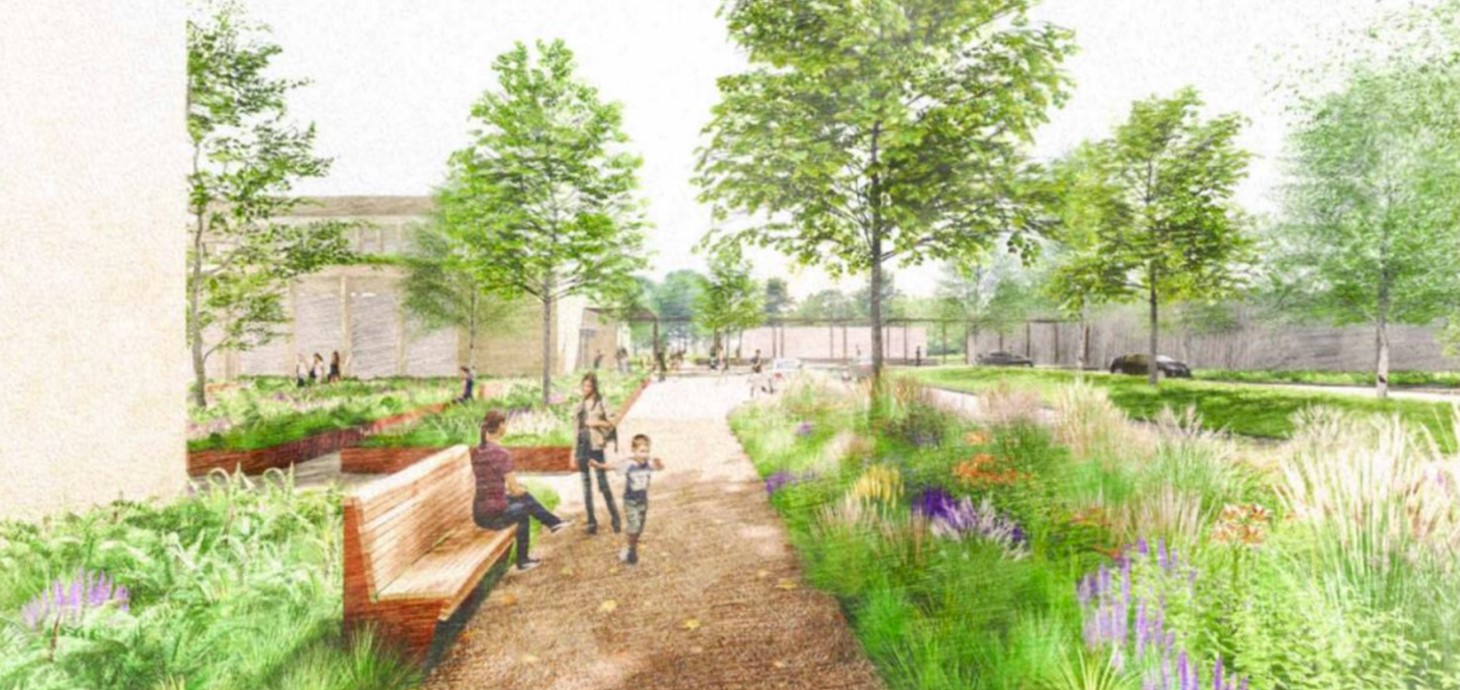
The new Velindre Cancer Centre aims to be the greenest hospital in the U.K. The design will embed natural materials and sustainable construction methods, aiming to enhance patients' well-being and biodiversity. Picture: Down to Earth.
Researchers from the School of Psychology have been awarded funding to examine the potential health benefits of creating sustainable eco-friendly hospitals and providing healthcare outdoors.
Professor Jason Davies and Dr Kim Dienes will join forces with Down to Earth - a local award-winning social enterprise and Swansea University spin-out - to examine the impact of the Fit for the Future scheme.
The Swansea team have been awarded £50,000 for the evaluation work, as part of the overall funding of £895,000 provided for the scheme.
Two pioneering health projects for the NHS are being developed by Fit for the Future.
The first is supporting public engagement for a new cancer treatment hospital at Velindre NHS Trust, which will be designed using sustainable construction methods that have a low impact on the environment.
The aim is to improve the well-being of patients, promote biodiversity and showcase low carbon, natural approaches to construction.
The second project is “Our Health Meadow”, adjacent to University Hospital Llandough near Penarth. A seven-acre field and another seven acres of surrounding woodland will be transformed into an outdoor healthcare and rehabilitation facility.
Both sites will be co-designed and constructed in collaboration with patients, hospital staff and the local community.
Previous research by the Swansea team has shown that engaging vulnerable and hard to reach groups in sustainable construction methods can increase skills and motivation and have important impacts on social connection and mental health.
Professor Jason Davies of Swansea University said:
“The benefits of spending time in the outdoors are increasingly being recognised. This project provides a unique opportunity to extend our previous research to consider how engaging in building, landscaping and ecological projects could benefit a range of clinical groups, healthcare staff and members of the wider community.
This work epitomises the core ideas within the Future Generations Act and has the potential to form the blueprint for new approaches to developing health, social care and education building and facilities in the future.”
Dr Kim Dienes of Swansea University said:
“Green initiatives are recognized as especially important after the lockdowns of the past year. The Fit for the Future scheme integrates mental health, ecological engagement, and wellbeing for some of those who need it most: NHS staff and patients.
We are very excited to be a part of the scheme and to hopefully use it as a starting point for similar projects throughout Wales.”
Mark McKenna, co-founder and director of Down to Earth, added:
“Now – more than ever – we need to find the best ways to deliver healthcare in a way which is good not only for patients but also for the NHS staff who provide health care.
Green infrastructure and the natural environment underpin a long term, sustainable approach to health care which is good for people and good for the planet. This research by Swansea University will provide critical insights into how this can be most effectively delivered”.
More about Swansea research in:
